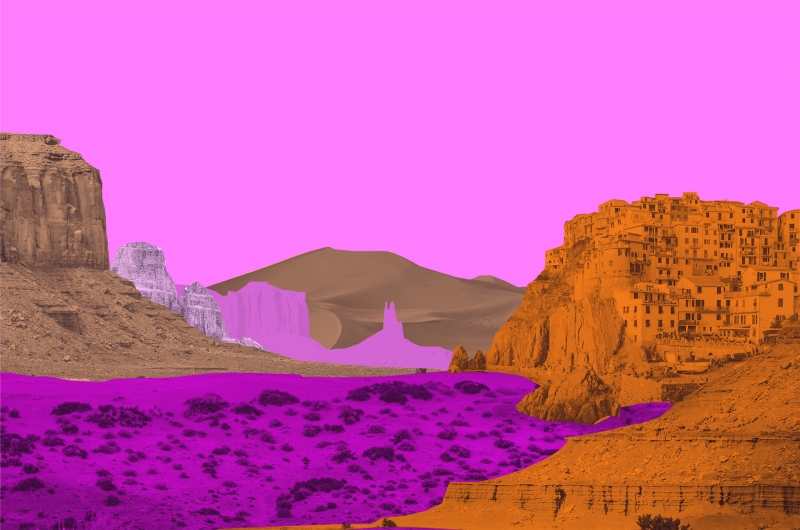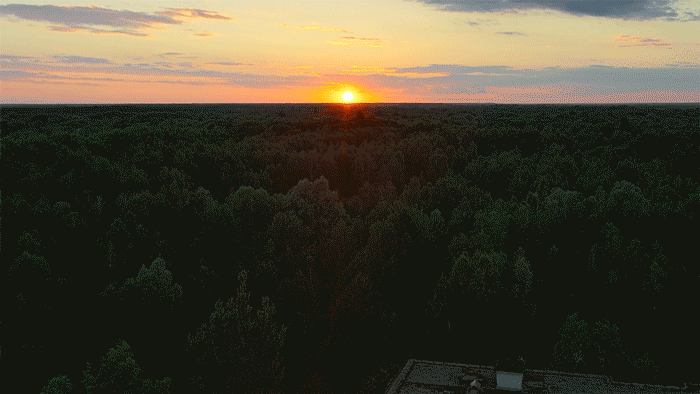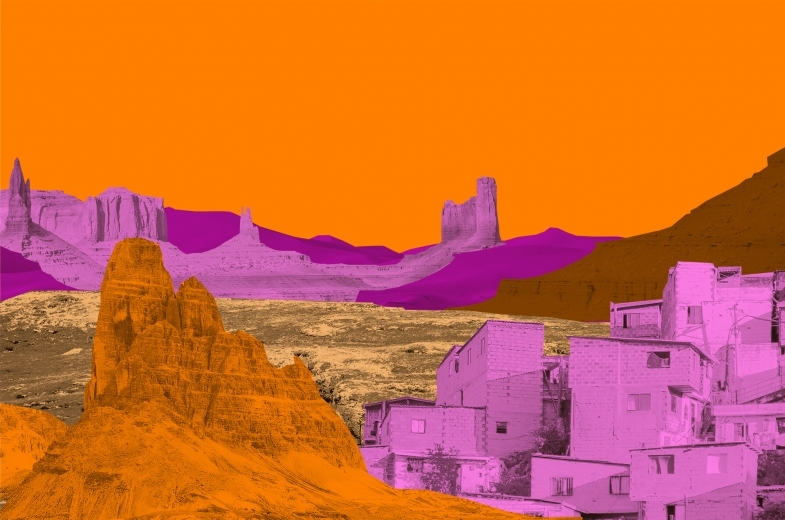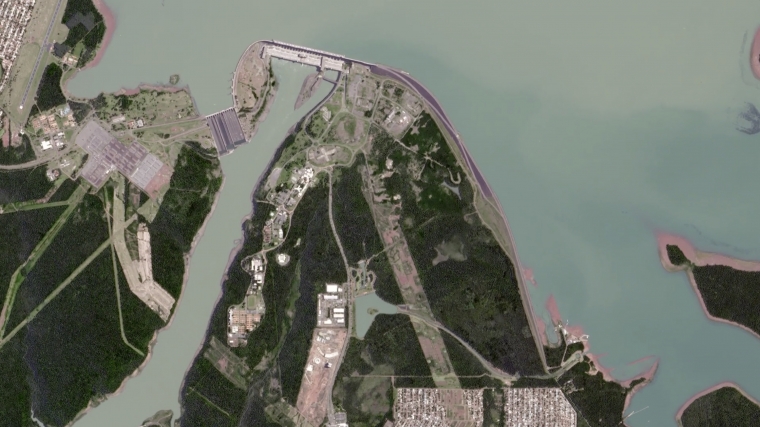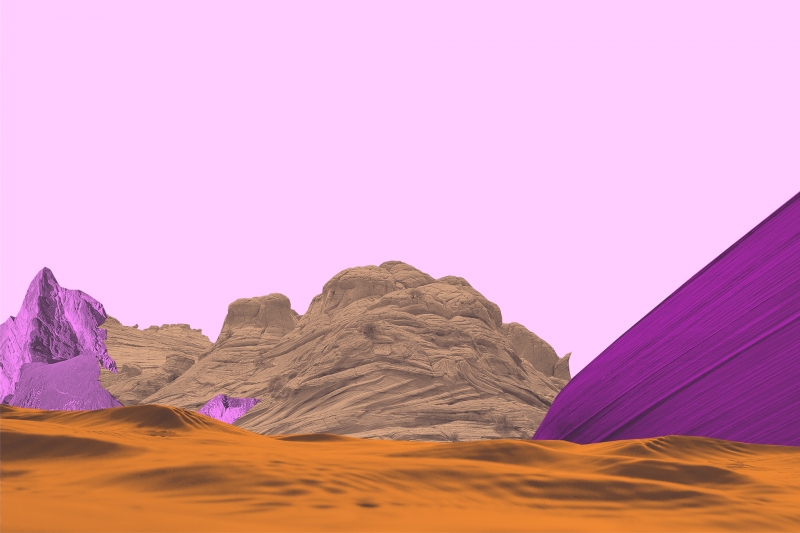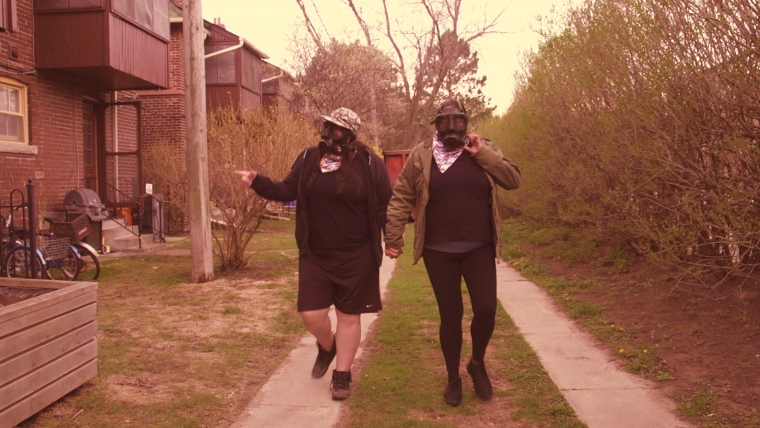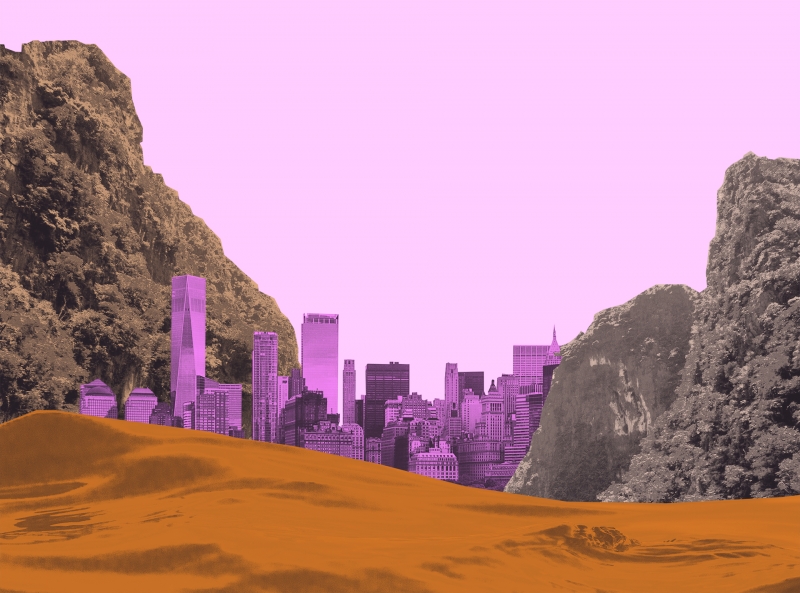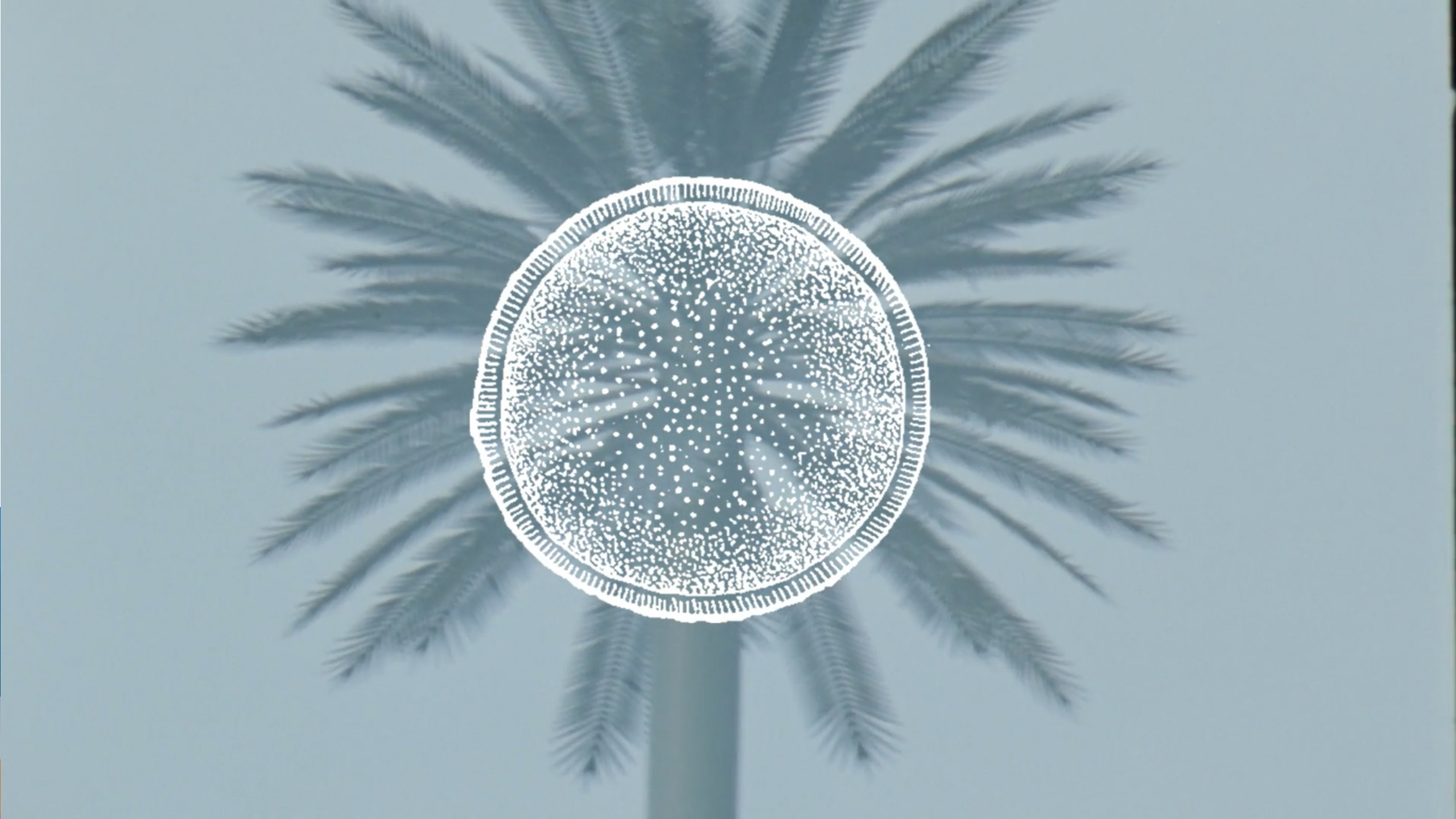
Filipa César
Video still from "The Trouble with Palms (repérage)", 2017
Courtesy of the artist
Showing here from 29 May to 25 June 2021, as part of the Climate Collective video screening series.
Retracing a chapter of the infrastructural panopticon that we live immersed in, Filipa César’s The Trouble with Palms is a cinematic repérage which forensically reconstitutes the ghostly presence of a shutdown palm oil factory in the Guinean tropical island of Bubaque. At a time when further palm oil intensive monoculture is being planned on formerly Portuguese occupied territories, where previous sovereignty militarised agriculture through the plantation regime, The Trouble with Palms (repérage), dated 2017, reminds us how infrastructure imprints the land and atmosphere with its traces, constituting an environmental memory for years to come. This memory is also recalled by previous factory workers and town inhabitants who share their oral testimony, as proof of the violence not so long gone.
Can palms refract a future which differs from the imperialist afterimage that they promote?
— Margarida Mendes
No annual rings form inside a palm tree trunk.
Palms don’t count time in years.
As if resisting historicism.
No log in of the tree log.
No timer on the timber.
Palms forget to record and remember to forget.
The Trouble with Palms stems from the ruins of a German palm oil and arsenal factory that operated on the West African island of Bubaque, between the 1930s and the 1980s – equipped with Krupp and other German machinery. Materialistically, Filipa César unfolds and complicates an audiovisual critique of Western palm/tropical epistemic imaginaries upon this German/African case.
Today, the ruins of this factory constitute the substructure that serves as the precarious foundation of the entire town of Bubaque, in Guinea-Bissau. This Afro-German Krupp archaeology, the Western aesthetic and economic applications of the palm tree, as well as various useful readings of the word palm, are the lines through which the filmmaker speculates on this film essay. The less-known and displaced German history unfolds the politics and poetics of its latent and violent cognitive imagery that also informs today’s prostheses of colonial narratives. Palm oil – one of the most aggressive and profitable businesses in today’s globalized world, with plantations that are only possible in countries near the equator and on land often gained by the deforestation of rainforests or expropriation of farms – is latent in one third of any product sold in Western supermarkets. Palmitic acid is widely used in the arsenal industry of yesterday and today. On the other hand, palm trees still feed today’s Western imagery of the tropical, the exotic and the distant. As an example: two palm tree sculptures serving as public art pieces (ornaments) at the new Bundesnachrichtendienst (BND) building in Berlin – interestingly articulated with the apparently naive jury’s comment that clearly expresses the prolongation (with other means) of colonial fantasies of otherness – decorating the park of the headquarters of the most powerful federal intelligence service in Europe: “The palm trees give the building a strange rootlessness, a somewhere in the no man’s land between the desert and the shopping mall, moments of displacement and dislocation.”
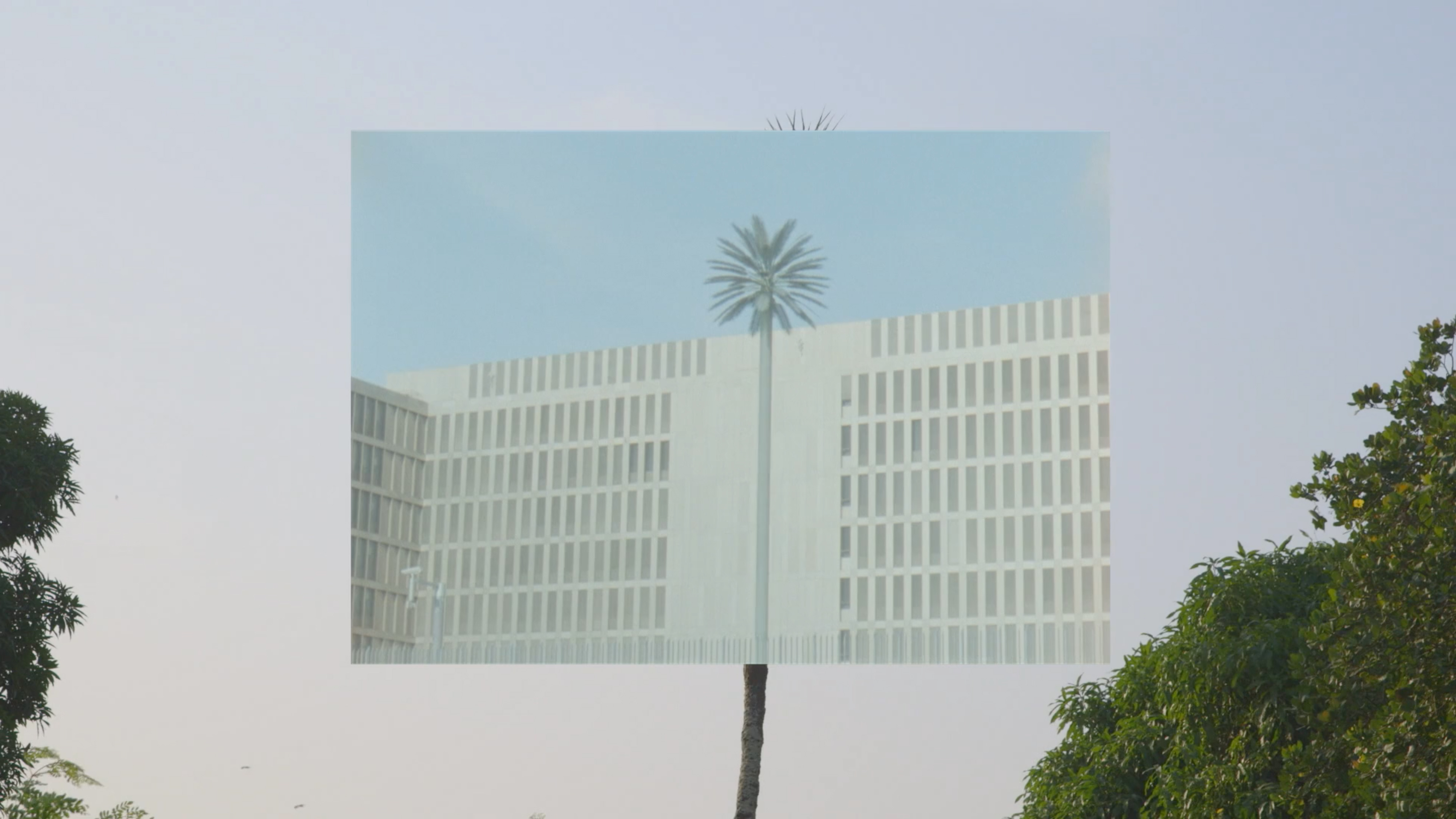
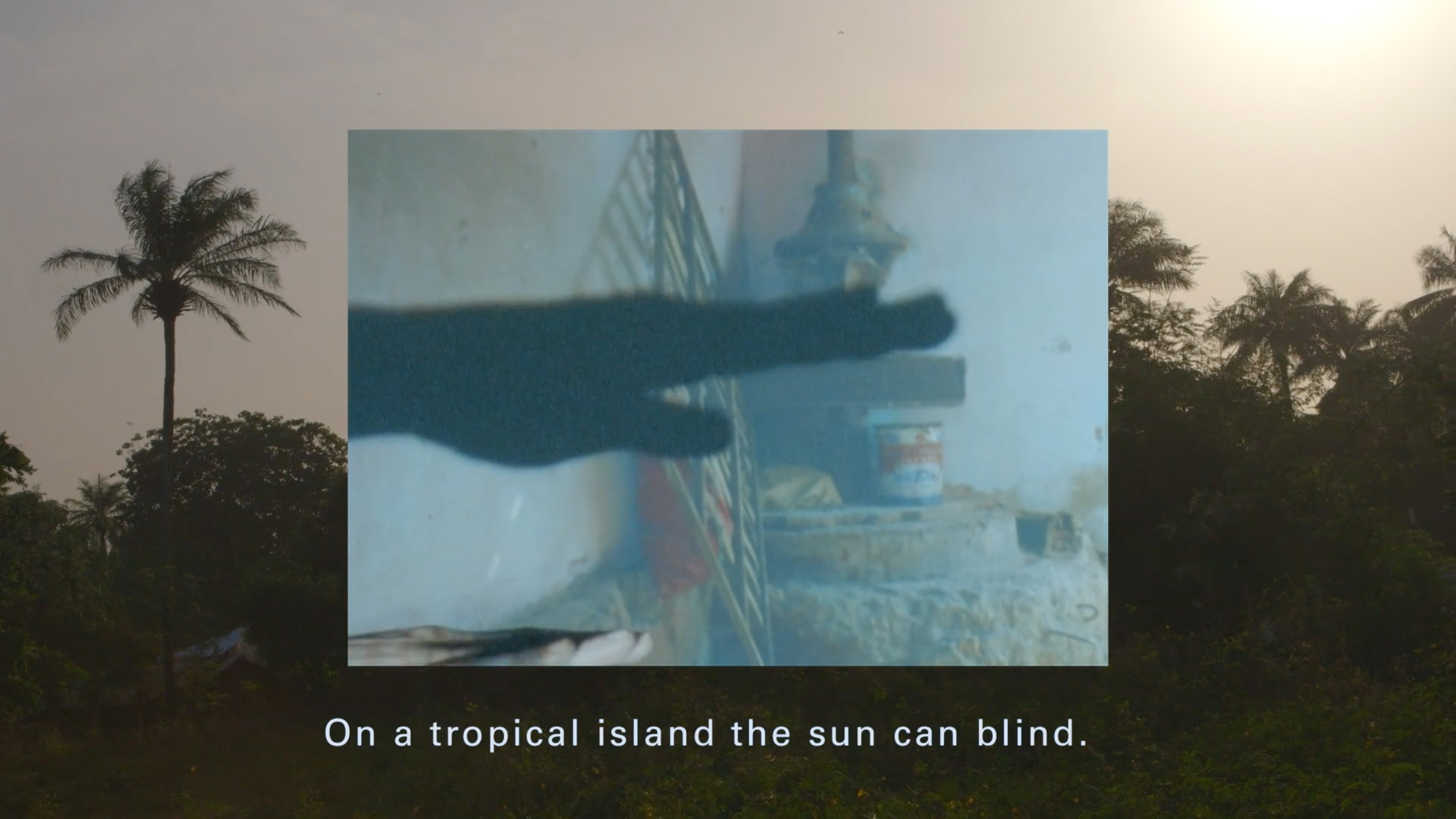
Filipa César, video stills from “The Trouble with Palms (repérage)”, 2017. Courtesy of the artist.
The film The Trouble with Palms assembles the material of these researches – where the palm tree with its conflicts of anodyne KRUPP images is convoked through the palm of the hand, with its gestures and casted shadows, as agent of the “palming” activities – to palm, to steal, to hide, to subvert. The essayistic palm performs an active role in “how to turn it around” (Farocki, 1970) through a “constructed”, “artificial” “set up” (Brecht, 1933). The tropical island is depicted through the troubling focus on the ruins of a German factory that are the constitutional groundwork of its urban landscape. Abstractions become material, and from materials new abstractions are produced. Found footage, local encounters, statements, quotations, and images shot in Bubaque are entangled with the performances of various productions of palmitic shapes, gestures, shadows, and shades.
Palm, flat of the hand,
Farocki would say das Hand-Innen.
The inside of the hand. And inside the hand the palmitic acid.
Palm, tropical tree, the name derives
from the shape of its leaves
like stretched fingers of the hand.
Filipa César
Filipa César has been researching since 2011 the origins of the militant image of the African Liberation Movements in Guinea Bissau as a laboratory of resistance to colonial epistemologies. Her essay “Meteorisations: Reading Amílcar Cabral’s Agronomy of Liberation”, was published in 2018, in Third Text’s special issue The Wretched Earth: Botanical Conflicts and Artistic Interventions. In 2017, César premiered her first feature length essay-film Spell Reel at the Forum section of the 67. Berlinale. Filipa César's films and installations have been shown internationally at film festivals – such as Forum Expanded / Forum – Berlinale, IFFR, Rotterdam, DocLisboa, or Cinéma du Réel, Paris – and in contemporary art contexts – such as Tate Modern, London, Haus der Kulturen der Welt, Berlin, Jeu de Paume, Paris, MoMA, New York, Harvard Art Museums, Boston, Tabakalera, Madrid, among others.
Margarida Mendes was invited by the Climate Collective to convene a forum on “Environmental Memory”. Her research explores the overlap between infrastructure, ecology, experimental film and sound practices – investigating environmental transformations and their impact on societal structures and cultural production. She has curated several exhibitions and was part of the curatorial team of the 4th Istanbul Design Biennial (2018) and the 11th Gwangju Biennale (2016). She consults for Sciaena, an environmental NGO working on marine policy and deep-sea mining and has co-directed several educational platforms, such as escuelita, an informal school at Centro de Arte Dos de Mayo – CA2M, Madrid, and the ecological research platform The World in Which We Occur / Matter in Flux.
The Climate Emergency > Emergence public programme initiative energises critical analyses and creative proposals in moving beyond catastrophism and toward the emergence of environmentally sustainable futures. Interdisciplinary in breadth and international in scope, the programme is conceptualised by the newly-formed 2021 Climate Collective: T. J. Demos (USA), chair and chief-curator, Molemo Moiloa (South Africa), Susan Schuppli (UK), Paulo Tavares (Brazil), geared toward assembling diverse cultural practitioners working at the intersection of experimental arts and political ecology.
As part of the programme taking place from April 2021 until April 2022, the Climate Collective has curated an online video screening series featuring films by a variety of international and local practitioners around themes addressed in the ongoing events.
“maat Explorations” is a programme framework featuring an ongoing series of exhibitions, public and educational projects delving into the multi-faceted subject of environmental transformation from various scholarly and experimental vantage points – it brings philosophical and political perspectives forward, as well as sociocultural and technological investigations interwoven in speculative and critical practices in the arts and design at large.
Central to the discursive and critical effort of “maat Explorations” is the establishment of the Climate Collective, a rotating group of experts in the expanded field of contemporary art, design and technology that will each year propose a refreshed vision on the connection between creative practices, ecological thought and politics.


